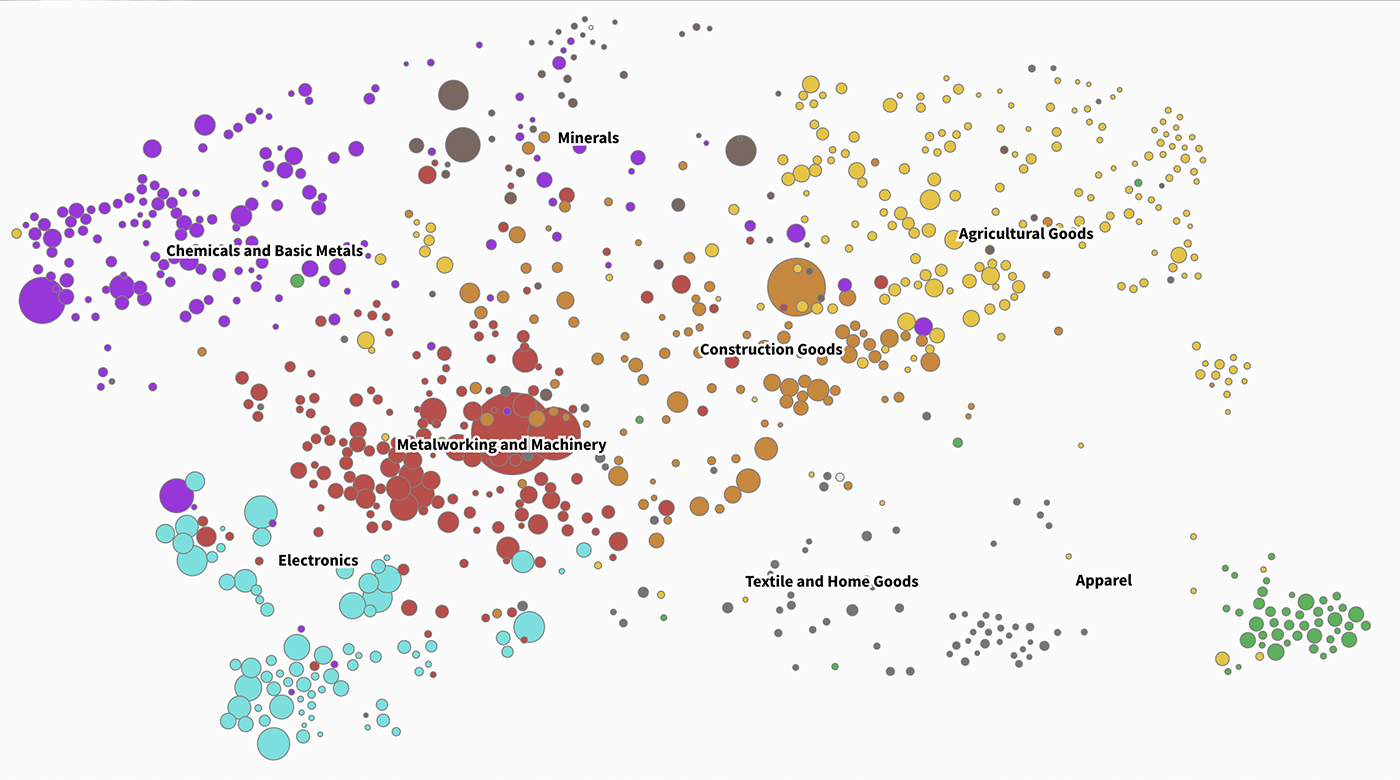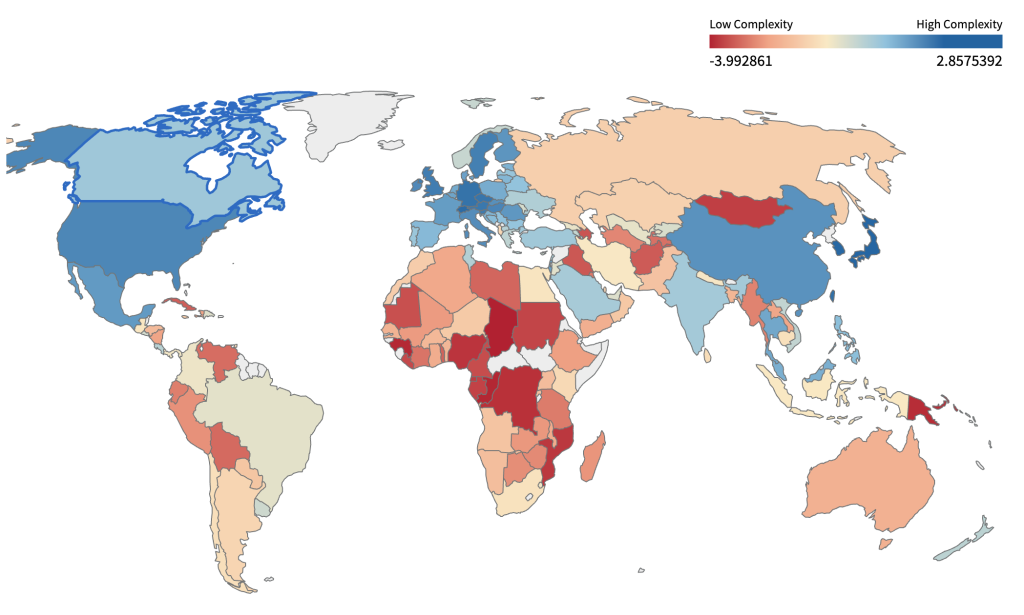Atlas of Economic Complexity 10.0 brings new data and Product Space design

Product Space of Germany, 2022
Atlas of Economic Complexity
The Growth Lab at Harvard Kennedy School unveiled today the Atlas of Economic Complexity 10.0, which features a new Product Space data visualization, updated global trade data, and larger graphics with a more intuitive workflow. Atlas 10.0 includes thirteen additional Country Profiles, a feature that takes users on an interactive journey through a country’s economic structure and dynamic growth patterns, ultimately leading to strategies necessary to achieve greater prosperity.
The Product Space depicts the connectedness between products based on the similarities of the knowhow required to produce them and visualizes the paths that countries can take to diversify. The reimagined Product Space includes:
– Re-designed layout to better visualize relationships between products; nearby products are more closely related based on the export of their patterns.
– Label-defined knowledge clusters of products based on shared capabilities and export patterns.
– Enhanced dynamics and analytical features like coloring products by their complexity.
New rankings in the Economic Complexity Index (ECI) find that the places that have made gains in complexity, led by East and Southeast Asia, will lead growth in the coming decade. ECI captures the diversity and sophistication of the productive capabilities embedded in a country’s exports and can closely explain differences in country incomes — and predict future growth. The ECI ranking finds the most complex countries in the world as follows: Japan, South Korea, Switzerland, Singapore, Taiwan, and Germany. Other notable countries include the United Kingdom (10th), the United States (14th), and China (18th). Among the most complex countries, the greatest improvements in the rankings for the decade ending in 2022 have been made by Hong Kong (12th), North Macedonia (49th), Armenia (54th), and Cambodia (77th).
The Growth Lab places a society’s diversity of productive knowledge — or knowhow — at the heart of the economic development process. Economic growth requires the accumulation of new knowhow and its use to diversify production into more sophisticated — aka complex — activities.

2022 Country Complexity Rankings, Atlas of Economic Complexity




